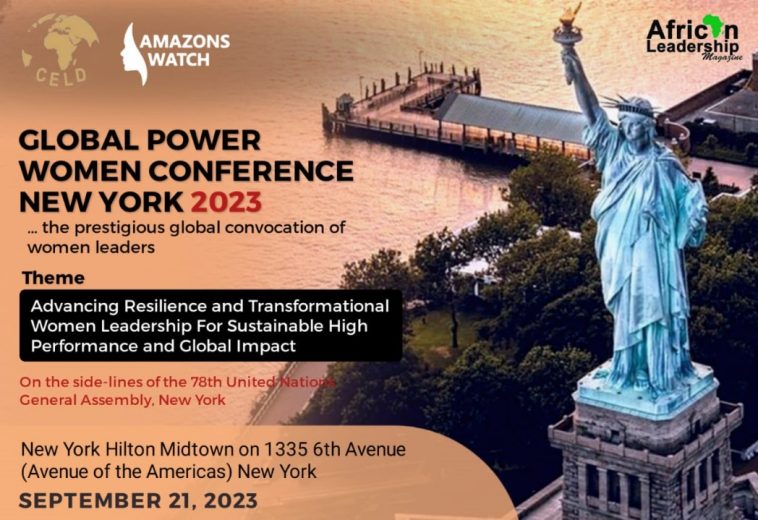With its immense resources, young population, and untapped potential, Africa presents a unique chance for economic growth and development. To realise this potential, the continent requires creative corporate leaders capable of driving innovation, creating jobs, and fostering long-term entrepreneurship. However, the African continent’s search for competent corporate executives has been both a difficulty and an opportunity. This article examines the significance of business leadership in Africa, the characteristics and abilities required for success, the challenges encountered, and initiatives aimed at cultivating and supporting rising leaders.
It’s important to note that effective corporate leadership is critical to the economic development of Africa. It is critical to stimulating investment, attracting foreign capital, and creating job possibilities. A strong company leader can handle complicated challenges, motivate change, and foster an entrepreneurial and innovative culture. Leaders can act as role models and catalysts for economic progress by leading successful firms, bringing communities out of poverty, and encouraging inclusive development.
The Successful African business executives have a distinct set of talents and skills that allow them to thrive in dynamic and frequently tough situations. First and foremost, visionary leadership is required. Leaders must be able to motivate and mobilise diverse stakeholders towards a single objective and have a clear strategic direction. Furthermore, due to the continent’s different marketplaces, regulatory systems, and socio-political landscapes, adaptability and resilience are critical.
Business leaders must also be skilled at developing strong relationships and networks on a local and global scale. This networking has been enjoyed by several business executives who attend business forums organised by the African Leadership Organisation.
Access to knowledge, markets, and capital is made possible through collaborations and partnerships. Effective communication and negotiation abilities are required for successfully navigating complex corporate situations, establishing trust, and attracting investments.
Ethical leadership is also essential. Leaders must operate with honesty, openness, and a commitment to corporate social responsibility. They may develop trust, recruit talent, and build long-term enterprises that benefit society by exhibiting ethical behaviour.
The challenges
While Africa has enormous potential, some numerous hurdles and obstacles impede the development of business leaders. These include a lack of access to money, insufficient infrastructure, political instability, corruption, and a lack of quality education and skill training. The high perceived risk associated with investing in Africa deters potential leaders and investors.
Furthermore, gender inequality remains a key barrier to inclusive leadership. Women entrepreneurs frequently confront systemic inequalities as well as limited access to money, networks, and mentorship. To address these difficulties, governments, corporations, and civil society must work together to create an enabling environment that supports aspiring leaders, promotes gender equality, and nurtures entrepreneurship.
Initiatives required to develop emerging business leaders
Various programmes are being done across Africa to develop and support emerging business leaders. Governments, private sector organisations, and international institutions are investing in programmes that focus on leadership development, entrepreneurial education, and financial access.
To ensure key developmental programmes for emerging and substantial leaders in Africa, the African Leadership Organisation, publishers of the African Leadership Magazine, developed a template for the continued training and retraining of leaders on the continent for better productivity that takes them to the global stage. There was a major leadership training in Mauritius earlier in the year, and another is to be done in Dorchester, England, in July 2023. Those who want to become the top global business leaders from Africa should consider attending the training being offered by the African Leadership Organisation
Leadership development programmes seek to discover and grow high-potential individuals by offering mentorship, training, and exposure to experienced company leaders. These efforts aim to improve abilities such as strategic thinking, decision-making, financial management, and networking.
Entrepreneurship education is critical for providing prospective leaders with the knowledge and skills required to start and manage successful firms. Educational institutions are introducing entrepreneurship into their courses, teaching students about business basics, creativity, and problem-solving. Incubators and accelerators also provide aspiring entrepreneurs with coaching, tools, and a supportive ecosystem in which to cultivate their ideas.
Access to capital is a critical enabler of entrepreneurial success. To close the funding gap for startups and small enterprises, governments and financial institutions are introducing new financing structures such as venture capital funds, angel networks, and microfinance projects. Additionally, efforts are being made to streamline rules, improve the ease of doing business, and minimise bureaucratic barriers.
Africa’s search for business leaders is critical to the continent’s economic growth because it is critical to unlocking the continent’s economic potential. The continent’s leaders must focus on generating capable and ethical individuals capable of navigating difficult challenges, fostering innovation, empowering women, and driving sustainable development.
Governments must prioritise investments in education, entrepreneurial development, infrastructure, and supportive regulatory frameworks in conjunction with the private sector and foreign partners. Africa can exploit its immense resources, empower its youth, and achieve sustained economic growth with good corporate leadership, ultimately changing the continent’s future for the better.


